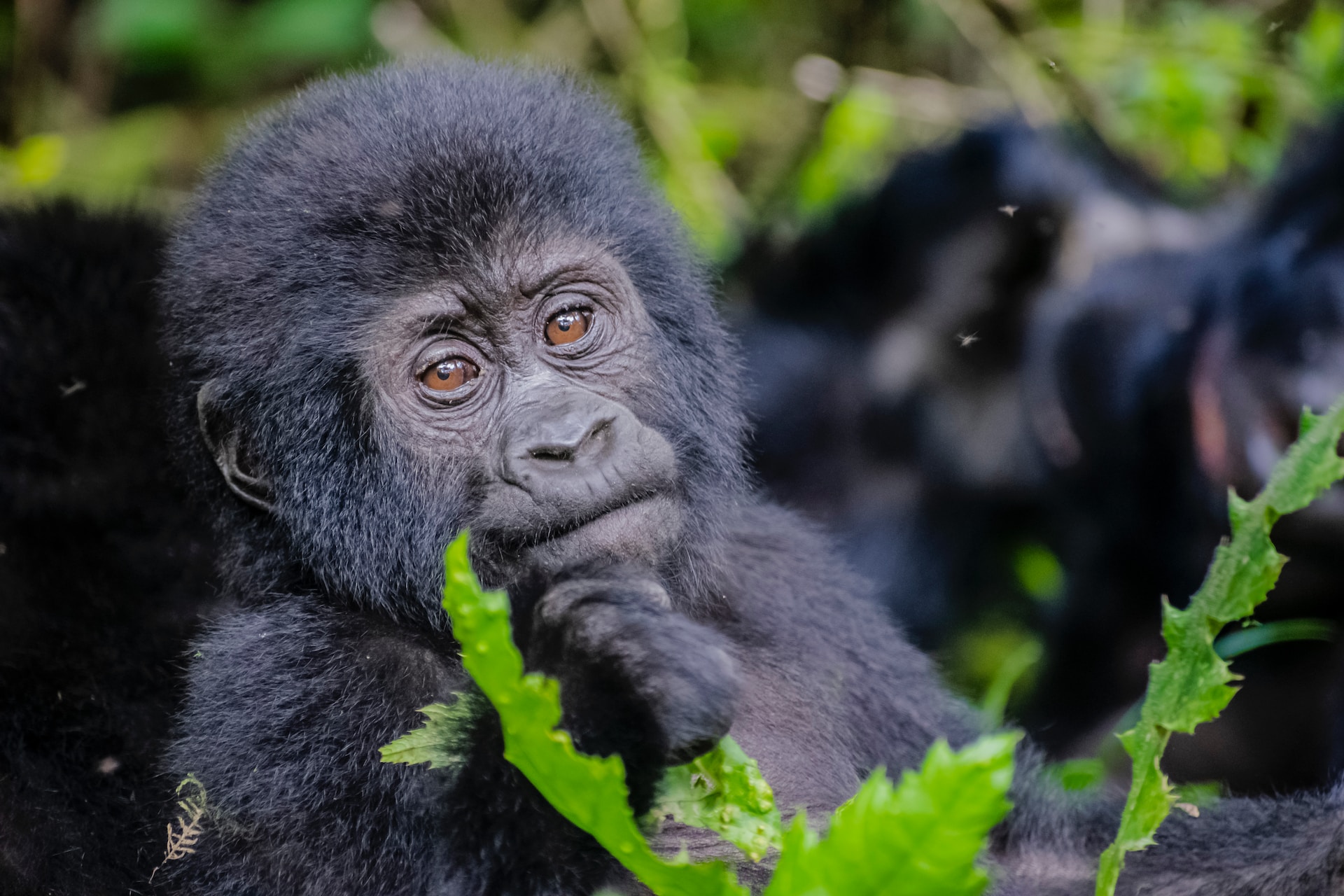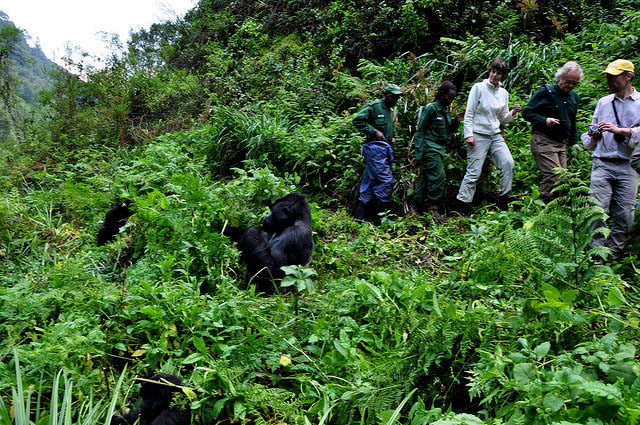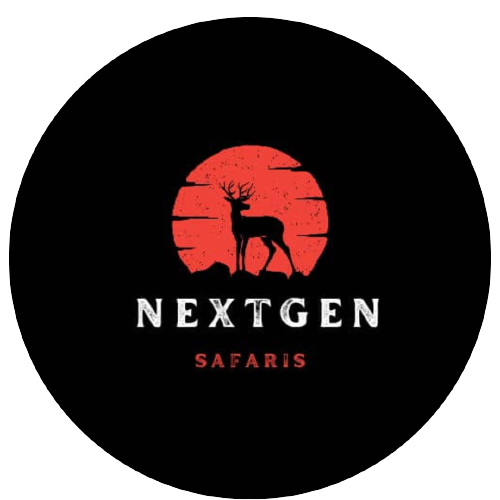Ruhija Sector

Ruhija Sector
The Ruhija sector is one of the four main sectors in the Bwindi Impenetrable Forest National Park in Uganda. This sector is particularly renowned for its population of endangered mountain gorillas, making it a popular destination for gorilla trekking experiences. The sector offers several habituated gorilla families that can be visited by tourists under the guidance of trained rangers and guides.
Ruhija is a small town located in southwestern Uganda, within the Bwindi Impenetrable Forest National Park. This area is renowned for its population of endangered mountain gorillas, making it a popular destination for tourists interested in gorilla trekking. The town offers accommodation, amenities, and serves as a base for visitors exploring the national park and its wildlife. The lush forests and mountainous terrain make Ruhija a picturesque and adventurous destination for nature lovers and wildlife enthusiasts. If you’re planning a trip there, be sure to check out the guidelines for gorilla trekking and consider hiring a local guide for the best experience.
In addition to gorilla trekking, the Ruhija sector also provides opportunities for birdwatching, nature walks, and cultural encounters with local communities. The lush forests and rugged terrain of the area contribute to its scenic beauty and appeal to visitors interested in wildlife and adventure tourism.
Visitors to the Ruhija sector typically stay in nearby accommodations, ranging from lodges to campsites, which provide comfortable bases for exploring the national park and participating in various activities. It’s advisable for travelers to book their gorilla trekking permits in advance, as they are limited in number and often in high demand.
Ruhija Sector Distance
The distance to the Ruhija sector of Bwindi Impenetrable Forest National Park can vary depending on your starting point within Uganda. However, to provide a general idea:
- From Kampala: The distance to Ruhija sector from Kampala, the capital city of Uganda, is approximately 500 kilometers (310 miles) by road. This journey typically takes around 8-10 hours by car, depending on road conditions and traffic.
- From Entebbe: If you’re starting from Entebbe, which is where Uganda’s main international airport is located, the distance to Ruhija sector is roughly the same as from Kampala, around 500 kilometers (310 miles). The travel time by road is also similar.
- From Kisoro: Kisoro is a town located closer to the southwestern border of Uganda. The distance from Kisoro to the Ruhija sector is shorter compared to Kampala or Entebbe, approximately 80 kilometers (50 miles) by road. However, the journey still takes a few hours due to the winding mountain roads.
Keep in mind that these distances and travel times are approximate and can vary based on factors such as road conditions, weather, and the mode of transportation. Additionally, it’s essential to plan your trip and transportation arrangements in advance, especially if you’re visiting for gorilla trekking, as permits are limited and should be booked well ahead of time.
Is gorilla trekking worth the money?

Gorilla trekking is often considered a once-in-a-lifetime experience and can be a significant investment of both time and money. Whether it’s worth it depends on your interests, budget, and priorities. Here are some factors to consider:
- Unique Experience: Seeing mountain gorillas in their natural habitat is a truly unique and unforgettable experience. It offers the opportunity to observe these incredible animals up close and learn about their behavior and conservation efforts.
- Conservation Impact: The fees paid for gorilla trekking permits contribute to the conservation of gorillas and their habitats. By participating in gorilla trekking, you are directly supporting conservation efforts and helping to protect these endangered species.
- Adventure and Thrill: Gorilla trekking often involves hiking through lush forests and rugged terrain, which can be a thrilling adventure for outdoor enthusiasts. The experience of tracking gorillas in their natural environment adds to the excitement and sense of adventure.
- Limited Availability: Mountain gorillas are found in only a few locations in the world, primarily in Uganda, Rwanda, and the Democratic Republic of Congo. Gorilla trekking permits are limited and can sell out quickly, especially during peak seasons, so it’s essential to plan and book in advance.
- Cost Considerations: Gorilla trekking permits can be relatively expensive, typically ranging from several hundred to over a thousand dollars per person, depending on the country and time of year. In addition to permit fees, there are other costs to consider, such as transportation, accommodation, and optional guided tours.
Ultimately, whether gorilla trekking is worth the money is subjective and depends on your personal interests, budget, and priorities. If you have a passion for wildlife, adventure, and conservation, gorilla trekking can be a truly rewarding and worthwhile experience. However, it’s essential to research and plan carefully to ensure you make the most of your trip and have a positive impact on conservation efforts.
GENERAL INFORMATION
ENTRY REQUIREMENTS:
All visitors to Uganda must have a valid passport with at least 4 consecutive blanks pages. Any applicable visa and/or relevant documentation are the responsibility of the traveller. For further information on Visa requirements visitors are advised to contact their nearest Uganda Embassy or Consulate.
LANGUAGE:
English
TIME:
GMT +3
VOLTAGE:
220 Volts/AC50Hz. Sockets are UK style, 3 pin square plugs. Power is from the UMEME in the city/major towns and generator with inverter back up in the Safari Lodges and Camps.
CURRENCY:
Foreign currency must be changed at the Bank, Bureau de Change, and Hotel/Safari lodge/Camp/Resort. Major Credit Cards, Master card, Visa, American Express, are usually accepted throughout the country. Where credit cards are accepted, the payment will normally be recorded in US$ regardless of the card’s default currency.
CLOTHING:
Dress is mainly informal and should be comfortable as well as practical. Something warm should be brought along for early morning and evenings. Safari clothes are available from hotels/lodges/camps.
BAGGAGE:
Where possible, travel light. Baggage space on safari is limited to medium suitcase or soft bag per person plus reasonable amount of hand luggage. There is 15 Kilogram per person limit on all flights to the wildlife sanctuaries. Excess luggage must be stored in your arrival hotel.
WATER:
You will find many different of opinion of what is safe and what is not. We recommend for peace of mind, to drink local Bottled Mineral water. It is important to drink plenty of water especially during the hotter months. We would recommend that guests drink at least 2 to 3 liters of water per day to limit the effects of dehydration.
HEALTH;
East Africa is a safe and secure destination; however, it is a good idea to take a few precautions. Kindly consult your GP or local doctor at least 6 weeks before you travel, with regards:
Malaria prophylactics. East Africa is a known malaria area and preventive measures are essential. You are advised to take one of the recommended anti-malarial drugs. Be sure to wear long sleeved shorts and trousers after sunset and spray the exposed parts of your body with a mosquito repellent spray
Remember to protect yourself from direct sun rays with sunscreen cream or safari hat.
DIETARY REQUIREMENTS:
For those guests with specific dietary requirement, please ensure we are notified prior to travel
GRATUITIES:
As a guideline and dependent on how happy you are, we would suggest the following:
The General Hotel/Lodge/Camp Staff – Approximately U$ 10.00 per person per day
Driver Guides – Approximately US$ 15.00 to US$ 20.00 per person per day
PHOTOGRAPHY:
Please be careful when photographing public buildings, airports, bridges, the national flag and people in uniform. Ensure that you have sought permission before photographing local people and their villages. If in doubt, please check with your guide.
Read about
10 Things you Should NOT DO on an African Safari.
What to expect on a safari in Uganda.
Bwindi Impenetrable National Park
How to Choose the Best Tour Operate for Your Safari in Africa
12-Day Gorilla Tracking in Bwindi
Some of our African Safaris
1 Day Jinja Ultimate tour Experience
1 Day White Water Rafting in Jinja
3 Days Bwindi Gorilla Habituation via Rwanda
3 Day Birding Safaris and Photography in Uganda
3 Day Safari to Queen Elizabeth National Park
3 Day fly in Gorilla Trekking Safari from Masai Mara
3 Day Grand Gorilla Trekking Safari
4 Day Chimpanzee and Gorilla Trekking Safari
4 Day Murchison Falls and Jinja tour

